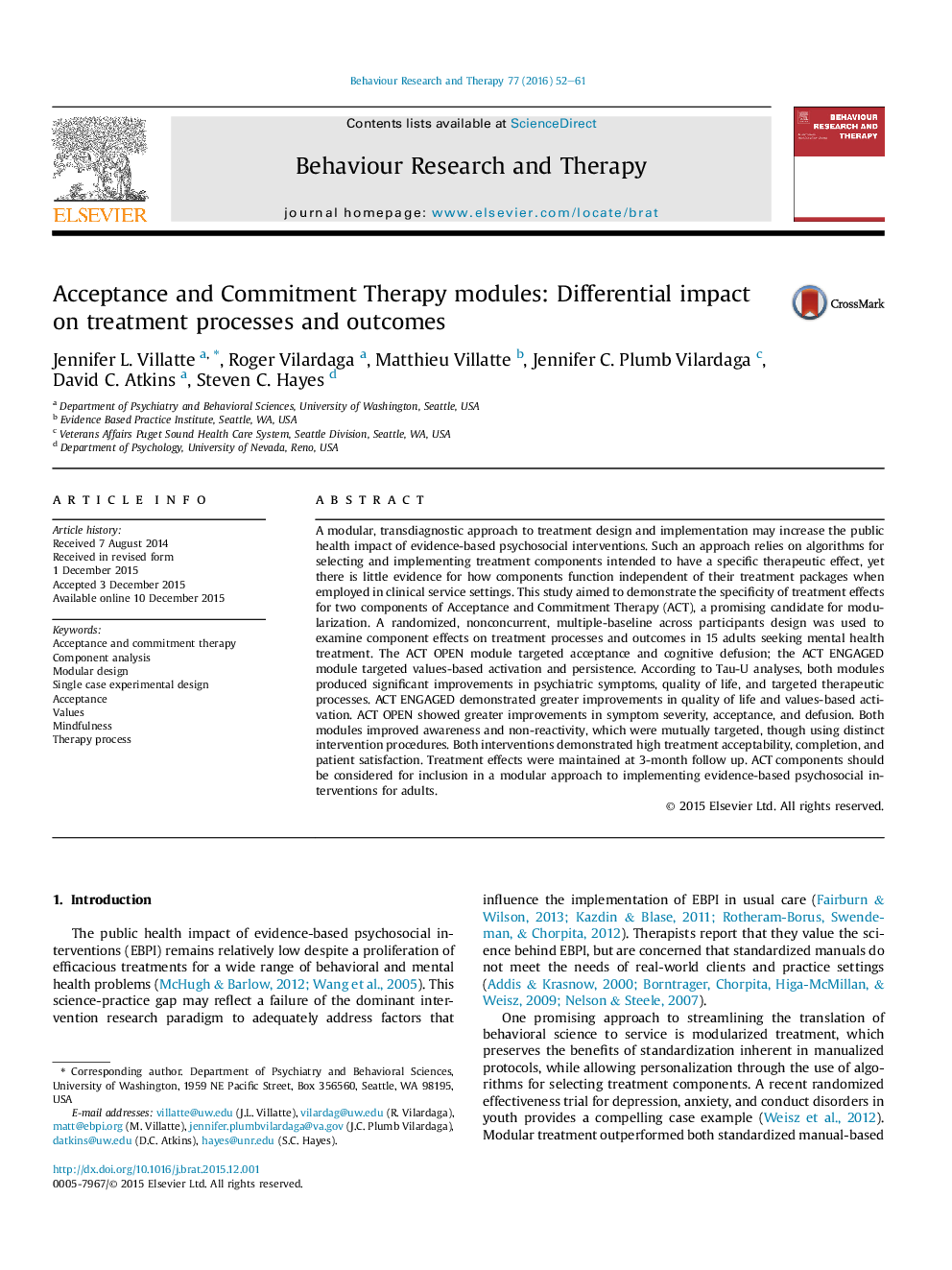| کد مقاله | کد نشریه | سال انتشار | مقاله انگلیسی | نسخه تمام متن |
|---|---|---|---|---|
| 901791 | 1472772 | 2016 | 10 صفحه PDF | دانلود رایگان |
• ACT component modules were examined for specificity of treatment effects in adults.
• Both modules improved symptom severity and life quality, but effect sizes differed.
• The OPEN module had larger effects on symptoms, cognitive defusion, and acceptance.
• The ENGAGED module had larger effects on life quality and values-based activation.
• Both modules improved awareness and nonreactivity to thoughts, feelings, sensations.
A modular, transdiagnostic approach to treatment design and implementation may increase the public health impact of evidence-based psychosocial interventions. Such an approach relies on algorithms for selecting and implementing treatment components intended to have a specific therapeutic effect, yet there is little evidence for how components function independent of their treatment packages when employed in clinical service settings. This study aimed to demonstrate the specificity of treatment effects for two components of Acceptance and Commitment Therapy (ACT), a promising candidate for modularization. A randomized, nonconcurrent, multiple-baseline across participants design was used to examine component effects on treatment processes and outcomes in 15 adults seeking mental health treatment. The ACT OPEN module targeted acceptance and cognitive defusion; the ACT ENGAGED module targeted values-based activation and persistence. According to Tau-U analyses, both modules produced significant improvements in psychiatric symptoms, quality of life, and targeted therapeutic processes. ACT ENGAGED demonstrated greater improvements in quality of life and values-based activation. ACT OPEN showed greater improvements in symptom severity, acceptance, and defusion. Both modules improved awareness and non-reactivity, which were mutually targeted, though using distinct intervention procedures. Both interventions demonstrated high treatment acceptability, completion, and patient satisfaction. Treatment effects were maintained at 3-month follow up. ACT components should be considered for inclusion in a modular approach to implementing evidence-based psychosocial interventions for adults.
Journal: Behaviour Research and Therapy - Volume 77, February 2016, Pages 52–61
